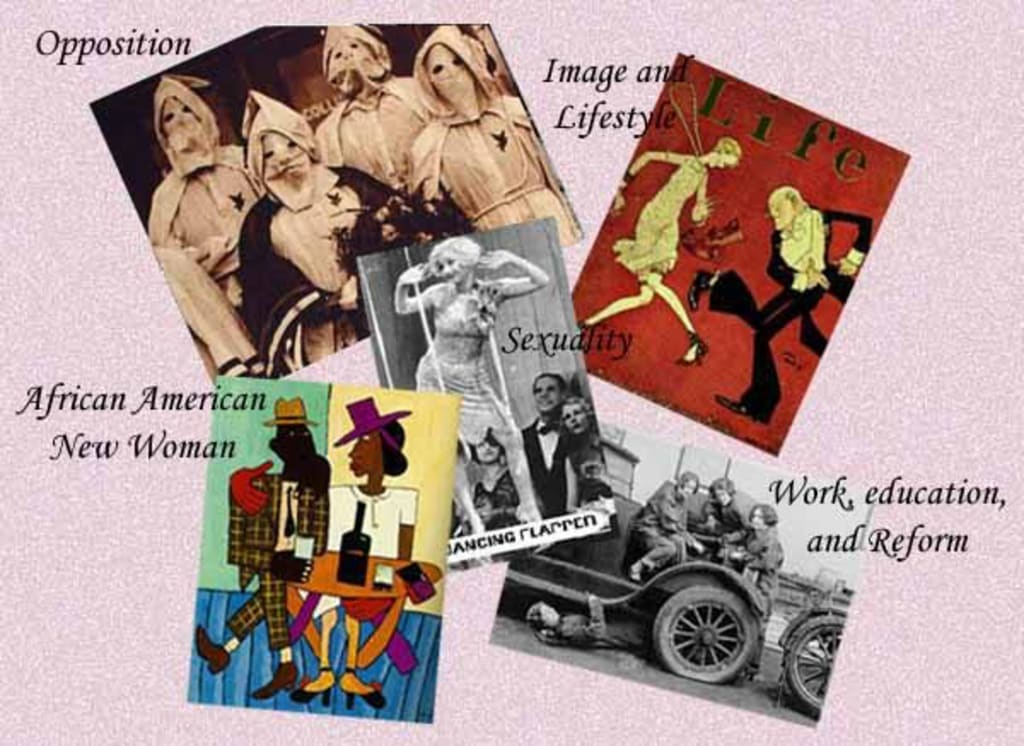How flappers rebelled through feminism and consumerism
Feminism

The 1920s, also known as the Roaring Twenties, was a period of cultural and social change in Western societies, particularly in the United States. One of the most significant changes during this period was the rise of the flapper, a new type of young woman who rebelled against traditional gender roles through feminism and consumerism.
The term "flapper" referred to a generation of young women who rejected the Victorian ideals of their parents and grandparents. They were characterized by their short hair, short skirts, and makeup, which were seen as scandalous at the time. Flappers were also known for their rebellious attitudes and their rejection of traditional gender roles.
Feminism played a significant role in the rise of the flapper. The suffrage movement, which had been active since the late 19th century, finally succeeded in obtaining the right to vote for women in the United States in 1920. This new political power gave women a sense of empowerment and allowed them to challenge traditional gender roles.
The flapper represented a new, modern woman who was independent and free-spirited. She rejected the traditional roles of wife and mother and instead pursued her own interests and ambitions. This included working outside the home, pursuing higher education, and engaging in activities traditionally associated with men, such as smoking and drinking.
Consumerism was another important factor in the rise of the flapper. The 1920s saw a rise in mass production and advertising, which created a culture of consumption. The flapper embraced this culture through her fashion, makeup, and accessories, which were often expensive and luxurious.
The flapper's fashion was a significant aspect of her rebellion. She wore short skirts and dresses, which were seen as scandalous at the time, and she accessorized with long strands of pearls, feather boas, and cloche hats. Her makeup was also bold, with dark lipstick and smoky eye makeup.
Consumerism also allowed the flapper to express her independence and individuality. She could buy her own clothes and accessories, rather than relying on her parents or husband to provide for her. This gave her a sense of freedom and allowed her to express herself in new and exciting ways.
However, the rise of the flapper was not without its critics. Many saw the flapper as a threat to traditional values and morals. They criticized her fashion, her behavior, and her rejection of traditional gender roles. Some even saw her as a symbol of moral decay and social decline.
Despite these criticisms, the flapper represented an important moment in the history of feminism and women's rights. She challenged traditional gender roles and paved the way for future generations of women to pursue their own interests and ambitions.
Today, the legacy of the flapper can still be seen in the ways that women express themselves and assert their independence. The spirit of the flapper lives on in the feminist movements of today, which continue to fight for gender equality and the empowerment of women.
In conclusion, the flapper was a new type of young woman who rebelled against traditional gender roles through feminism and consumerism. She represented a new, modern woman who was independent and free-spirited. Although the flapper was criticized by some for her behavior and fashion, she paved the way for future generations of women to assert their independence and pursue their own interests and ambitions. The legacy of the flapper can still be seen today in the feminist movements that continue to fight for gender equality and the empowerment of women right and the power against oppression and abuses from the opposite gender I’m the present world of today.





Comments
There are no comments for this story
Be the first to respond and start the conversation.